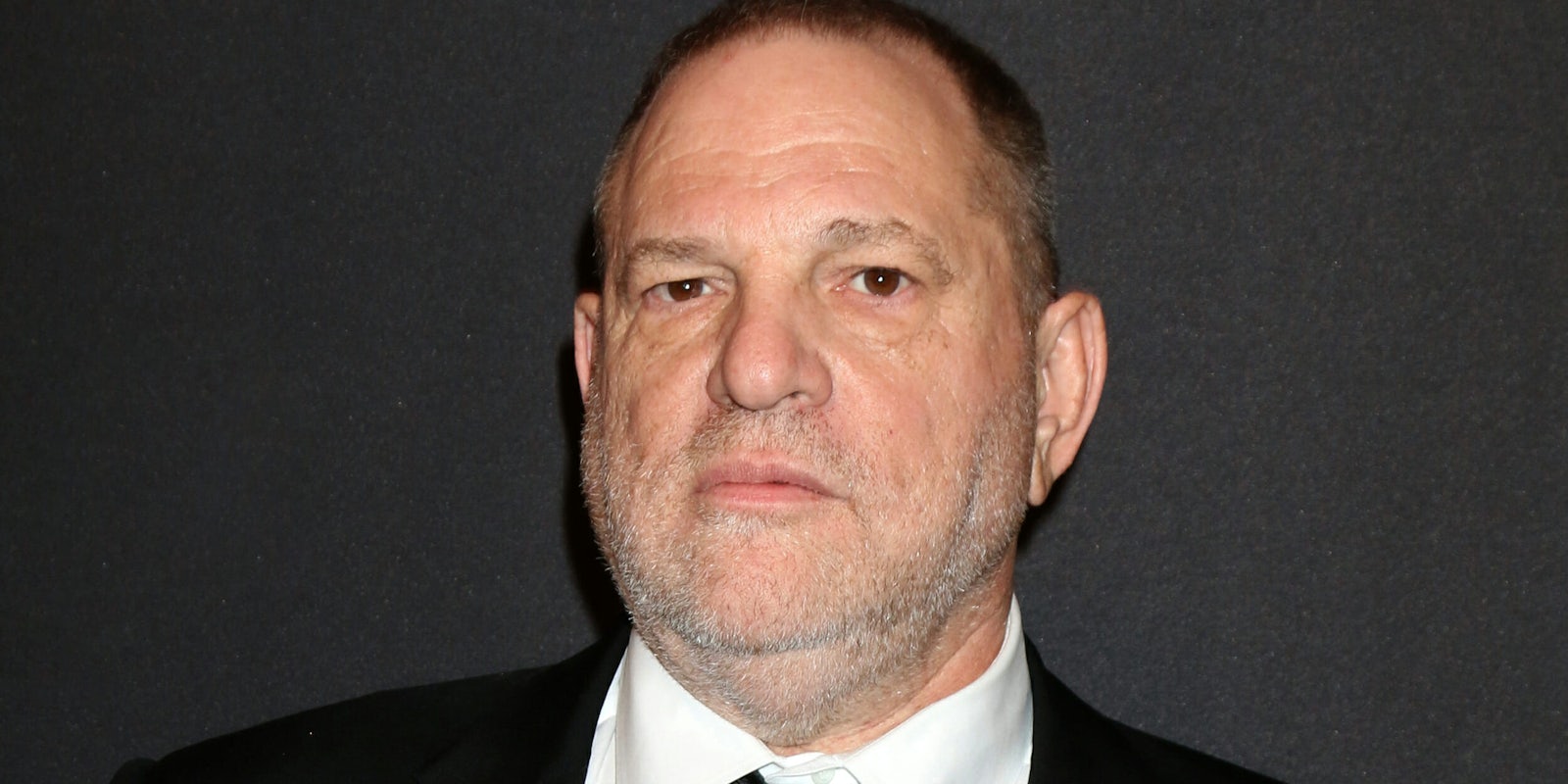In the two months since the New York Times published its first investigation into Harvey Weinstein, we’ve read the accounts of dozens of women who said that he sexually harassed, sexually assaulted, and raped them.
We learned about how some of his own employees helped him target young women and how he used his wealth to silence and retaliate against women who tried to speak up or report him. And whenever journalists were close to reporting on his systematic abuse of women, we read about the extreme tactics he used to make his accusers stand down and kill those stories from becoming public. And in a new New York Times investigation we’re now learning the sheer extent of Weinstein’s network of complicity, which included several people at a major talent agency, tabloid journalists, and some of his own employees who were powerless to speak up. Two instances of alleged misconduct by Weinstein occurred at the Toronto International Film Festival this past September even while he knew that reporters were digging into his decades of actions.
In Hollywood, Harvey’s reported harassment, assaults, and rapes were well-known, even among multiple agents at Creative Arts Agency (C.A.A.), a top agency, that heard complaints from clients and continued to arrange meetings between Weinstein and young actresses. When these actresses told their agents about what Weinstein did in those private meetings, they were often told to forget about it. According to the New York Times, Weinstein’s methods included asking C.A.A.’s Bryan Lourd to arrange a meeting with Ronan Farrow, a C.A.A. client who had been working on a bombshell report on Weinstein for NBC and later The New Yorker.
His attempts to control the narrative around him included using journalists on his payroll to dig up dirt on his victims, using as many people as he could to discredit the women and attempt to convince journalists to abandon their stories with a mix of flattery and threats. Hours before the New York Times’ first story on Weinstein dropped, Weinstein personally called the reporters and told them that he had the means to find out who had talked to them.
Weinstein used several employees at Miramax and the Weinstein Company to help him carry out his reported behavior. Employees—who were usually among the least powerful at the company—were tasked with bringing women to him in his hotel room. They provided him with penile injections he used for erectile dysfunction, which Weinstein paid for with a company card, and had to “dispense them to him in brown paper bags and sometimes deliver the medication to hotels and elsewhere” prior to meeting with women. If those employees complained about what they were asked to do, he reportedly threatened members of their family or fired them.
Weinstein’s reach extended to journalism and politics, and he bragged that he had access to the U.S. president and Amazon CEO Jeff Bezos, among others; Lena Dunham said she told members of Hillary Clinton’s campaign not to allow Weinstein to be involved because of Hollywood’s “open secret.”
Even though Weinstein’s career in Hollywood is effectively over—he’s been fired, kicked out of the Academy, and has lost his place in other guilds—and many who were once loyal have since abandoned him, at least one person who publicly condemned Weinstein still sees a future for him, telling him that “this will go away sooner than you think and it will be forgotten.”
“Focus on the future as America loves a great comeback story,” Paul Tudor Jones, an investor, told Weinstein in an email.


